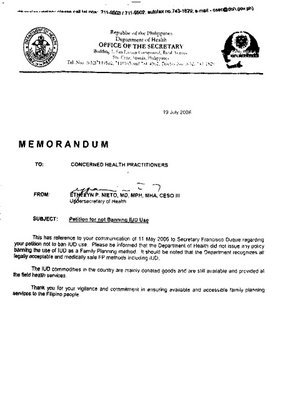Psychological Incapacity in the Family Code (Article 36)
Wife Battery and Psychological Incapacity Under Article 36 of the Family Code:Issues in Feminist Legal Advocacy
By Atty. Carolina S. Ruiz-Austria
(Executive Director, Womenlead Foundation, Inc.)
While it became hotly debated and touted as the de facto divorce law in the Philippines Article 36 otherwise known as the provision on psychological incapacity in the Family Code, has also been a source of both boon and bane for women’s rights advocates engaged in litigation.
For battered wives trapped in abusive marriages, the legal remedy of Article 36 that went beyond the simple “dissolution of the marital obligation to live together” (under the conventional law on legal separation) was a welcome development.
Article 36, by providing the nullity of a marriage ab initio (from the very beginning), was literally a liberating prospect for abused wives as well as legal advocates for women’s rights.
On the other hand, beyond the practical remedy of having a marriage declared null and void from the beginning came issues that feminists engaged in legal advocacy often eventually deal with: What premises are the law grounded on? What does the law say about the relationship between women and men? What are we as advocates, saying about the abused women in intimate relationships (specially wife battery) when we file a case for psychological incapacity?
Read more here.
Prof. Carol belongs to the Magdalena Batch of HAIN's Religion, Gender and Sexuality (RGS) Workshops. She is also a Senior Lecturer of the UP College of Law and maintains a blog tackling women's issues (http://www.carolinaruizaustria.blogspot.com).




